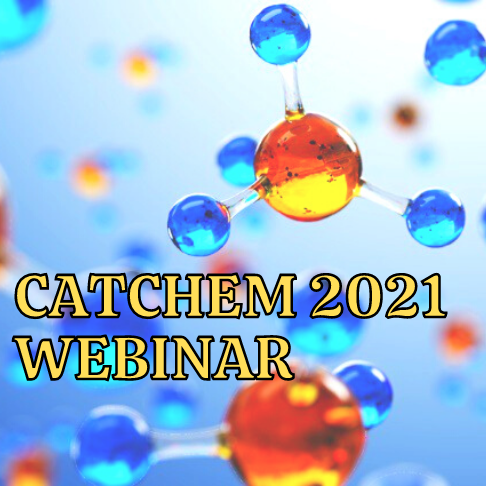
3rd Webinar on Catalysis, Chemical Engineering & Technology
Theme : Emerging Technologies and Scientific Advancements in Catalysis & Chemical Engineering
Event on: June | 24-25 | 2021
Location:
Virtual Event
EVENT STARTS iN
We are pleased to intimate you about our upcoming event "3rd Webinar on Catalysis, Chemical Engineering and Technology" during June 24-25, 2021. We will be really glad if you could accept our Invitation to participate as a Speaker at our event. CATCHEM 2021 will be a platform of interactions for experts around the world and aims to accelerate scientific discoveries.
The theme of the conference is “Emerging Technologies and Scientific Advancements in Catalysis & Chemical Engineering” covering a wide extent to serve as virtual online platform for the speakers to showcase their highly insightful research work, knowledge from the field of Catalytic Materials & Mechanisms, Chemical Engineering, Catalysis in Material Sciences and Nanotechnology and Polymer Chemistry to the audience and participants. In this peak time of struggle our aim is to bring global scientists/researchers and doctors to one platform to share updated information, Innovation and compliance to regulatory guidelines are the most critical aspects towards Catalytic Materials & Mechanisms, Chemical Engineering, Catalysis in Material Sciences and Nanotechnology and Polymer Engineering, Science and Technology.
Advantages of CATCHEM 2021:
Targeted Audience:
Guidelines For Speakers
Guidelines For Poster
Abstract Peer-review Process/Guidelines:
The Reviewing Committee of Conference ensures high-quality peer review process for all abstracts submitted to ensure adherence to the conference scope and abstracts which have passed this initial screening are then assigned to the session chair / review committee for evaluation.
The decision of abstract acceptance will be decided by a panel of experts emphasizing whether the findings and / or conclusions are novel and make useful contributions to the field.
The committee operates a single / double-blind peer review process for all the abstracts submitted, where both the reviewer and the author remain anonymous.
Once the reviews have been received, the review committee decides to accept or reject a manuscript, or to request revisions from the author in response to the reviewers’ comments. If the decision tends to be minor revision or major revision, authors will be given 14 days to resubmit the revised abstract.
Criteria to be considered for Scoring:
The abstract will be reviewed according to the following criteria:


Universitat de Barcelona
Spain

Hellenic Mediterranean University
Greece

University of Gdansk
Poland

Lodz University of Technology
Poland